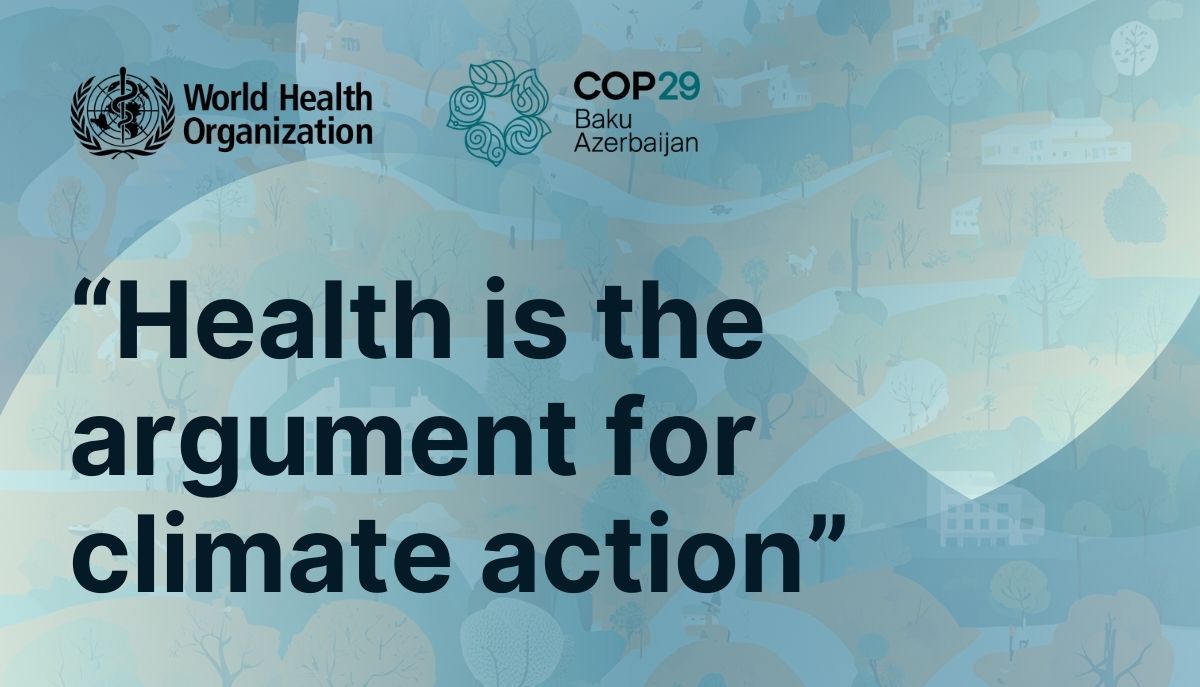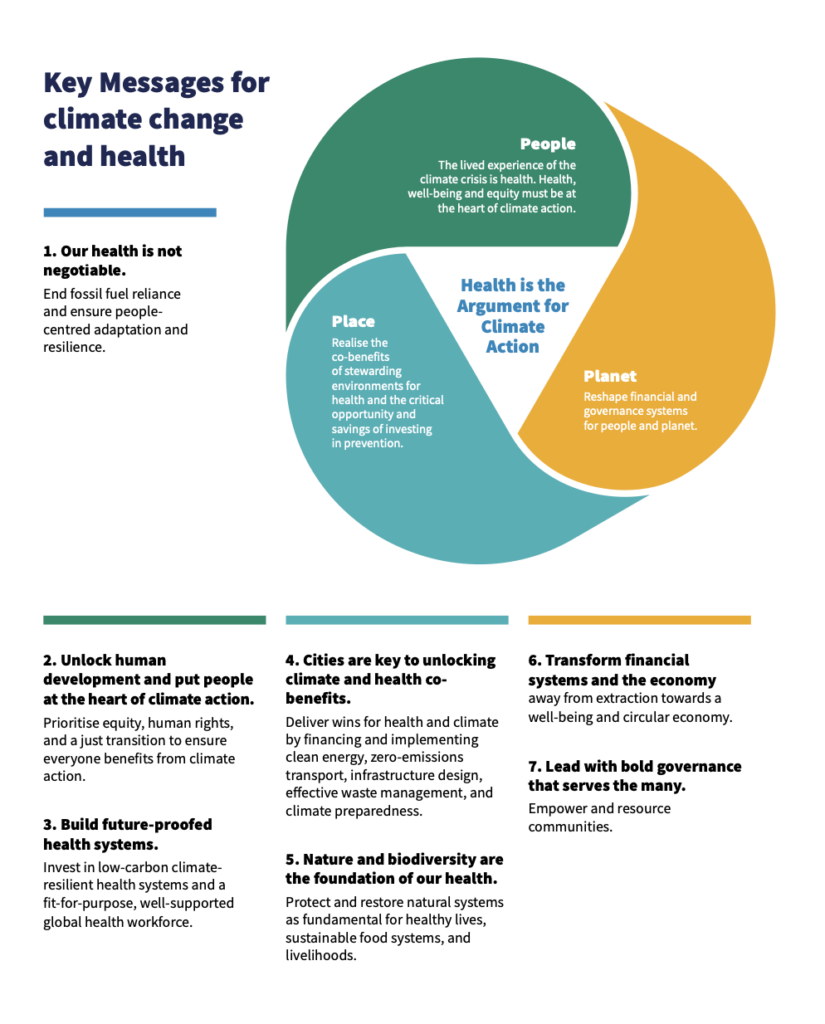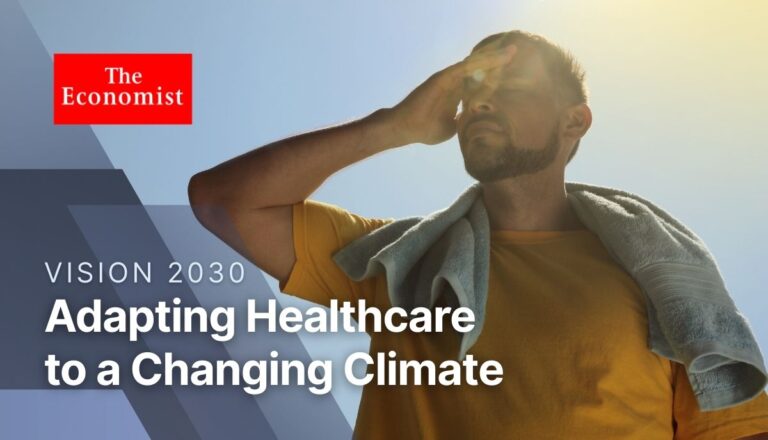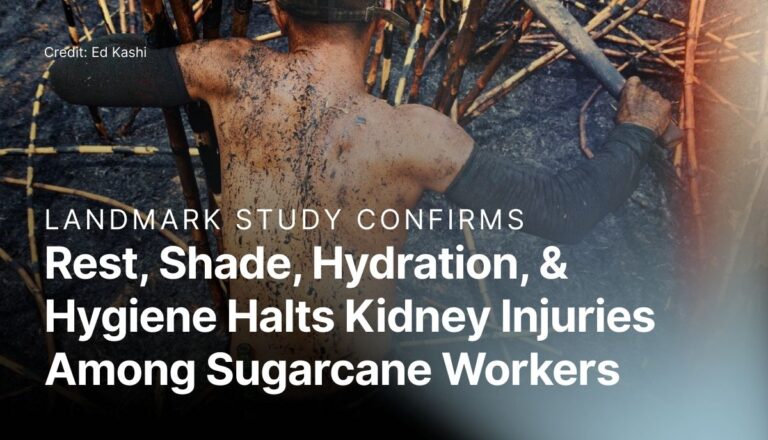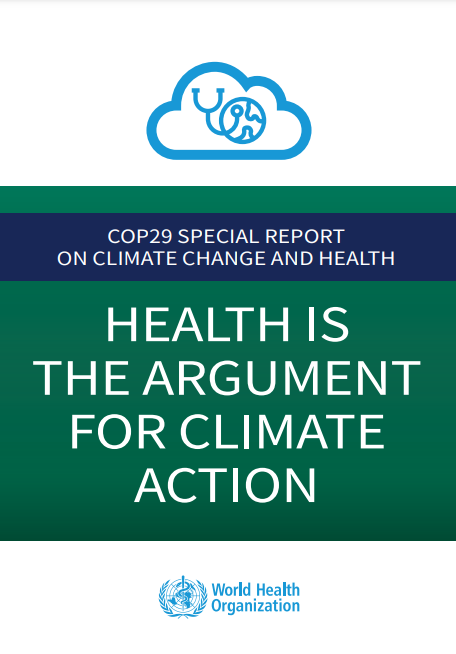
The World Health Organization (WHO) has issued a report linking climate change to rising health challenges, urging governments to incorporate health into climate policies as a priority. Released ahead of COP29, the report outlines how climate change is driving disease, straining health systems and disproportionately impacting vulnerable populations.
The report argues that addressing climate change can yield significant health benefits, framing public health as both a measure of climate success and a catalyst for action. WHO’s call comes amid increasing focus on the intersection of climate policy and human well-being as governments revisit their climate commitments under the Paris Agreement.
A Growing Health Crisis
Climate change is already altering disease patterns, worsening air quality and amplifying risks from extreme weather events. The report cites data showing an increase in heat-related illnesses, vector-borne diseases, and respiratory conditions globally. Vulnerable groups, particularly in low-income nations, face compounding risks due to limited access to healthcare and basic services.
Cities, which generate over 70% of global greenhouse gas emissions, are identified as critical areas for intervention. Urban planning decisions can mitigate health risks while addressing climate challenges. These include investments in public transportation, green spaces and clean energy.
Health at the Forefront of Climate Policy
WHO calls for a shift in how climate action is measured, advocating for health outcomes — such as reduced hospitalizations due to air pollution or heat stress — to serve as key indicators. The organization also urges governments to redirect subsidies for fossil fuels, which currently amount to $7 trillion annually, to fund healthcare systems and renewable energy initiatives.
The report highlights ongoing efforts to integrate health into climate strategies. More than 85 countries have pledged to build climate-resilient health systems, but progress varies widely, and funding gaps remain a significant obstacle, particularly in regions most affected by climate impacts.
Broader Implications
WHO’s emphasis on health reflects a growing trend in global climate discussions. Recent G7 and G20 declarations have linked climate action to public health outcomes, and cities worldwide are adopting strategies that align with this dual focus. These developments suggest a shift toward more comprehensive approaches that address the interconnected challenges of health and climate resilience.
By framing health as central to climate policy, the WHO report aims to broaden the scope of global climate action. The message is clear: effective climate strategies must account for their impact on human well-being. As COP29 unfolds, this perspective could shape policy discussions, potentially influencing investments and international cooperation on climate and health.
La Isla Network is an occupational health research and advisory nonprofit dedicated to ending heat-related illnesses among workers and their communities worldwide. We develop and implement data-driven worker protection and management assessment protocols to improve the resiliency of workforces and businesses to heat stress. Our work is backed by best-in-class researchers, industry leaders and government and multilateral institutions like the ILO. For more information please use our contact form.


